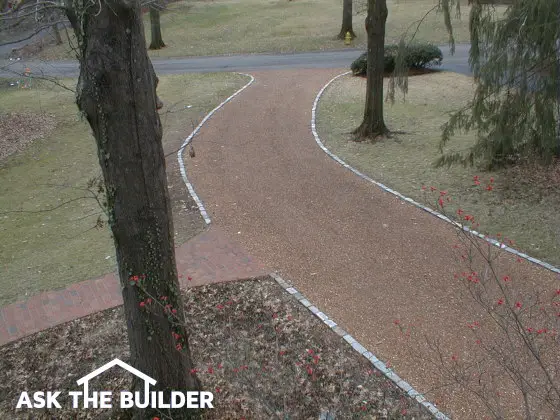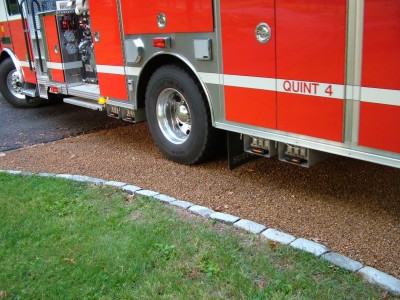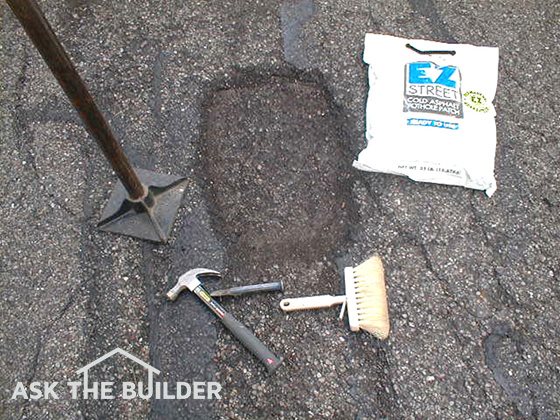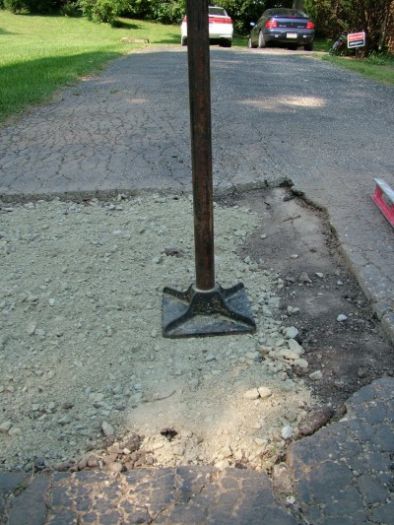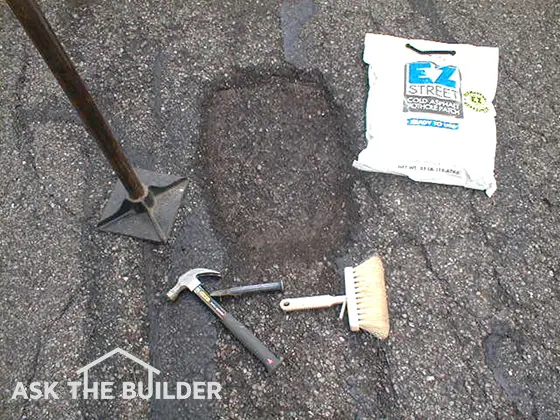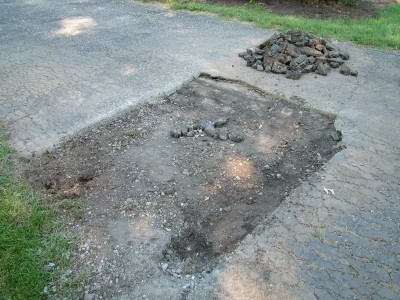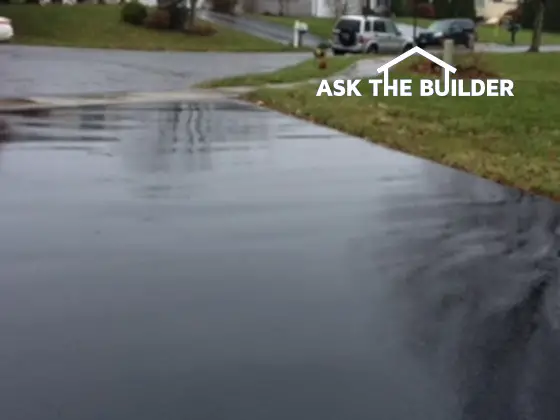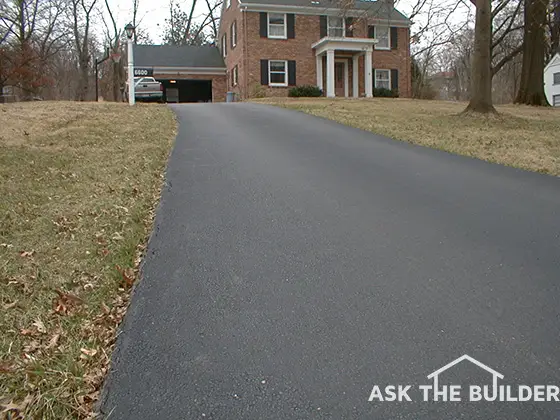How is a Tar and Chip Driveway made?
Tar and chip driveways are very similar to blacktop or standard asphalt driveways. Both are usually installed on a compacted gravel base. The base is the foundation or strongest part of the driveway. Blacktop and/or tar and chip surfaces are actually flexible. They are the actual wear layer and prevent the erosion of the gravel base.
How is tar and chip different from blacktop?
A tar and chip driveway differs from a standard blacktop driveway in that it is made on site. The hot liquid asphalt and stone chips are actually applied simultaneously on the gravel base.
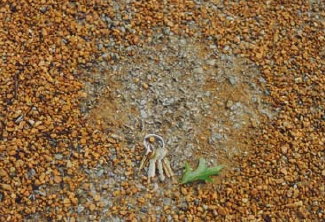
Blacktop, a mixture of asphalt, sand, and gravel,on the other hand, is usually mixed at an off site plant. It is delivered, much like ready mixed concrete, to your house and applied with a special spreader. If you are installing a brand new or reconstructed driveway, you will do well to have two layers of tar and chip done. That gives a nice thick coating and a surface that may last up to 12 to 15 years. If you have an existing blacktop driveway, you may get by with a one coat application.
Get the best-looking Tar and Chip Driveway around! Use my Asphalt/Blacktop/Tar & Chip Installation & Repair Checklist and learn what to ask your contractor. I offer a 100% Money Back Guarantee.
Advantages of Tar and Chip
Standard blacktop pavements require protection from the sun and air. The asphalt that bonds the sand and gravel together can become brittle. If you have a blacktop driveway you have probably had to seal it with a liquid coating. Tar and chip driveways do not require this periodic maintenance.
Tar and chip driveways are slightly rougher than a standard blacktop driveway. This characteristic comes from the fact that small, cubical shaped stone chips are dropped directly into the liquid asphalt. The surface, after it is compacted with a heavy roller, resembles a chunky chocolate chip or oatmeal cookie. The surface isn't smooth, yet it isn't sharp and abrasive. It is in between. This surface provides excellent traction in wet or snowy weather.
What Makes up the Paving Surface
Asphalt - Two Types
The liquid asphalt that is used to coat the driveway and act as the adhesive for the chips can come two ways. It can be a cutback asphalt which is specifically formulated for your region. These asphalts are sticky and release hydrocarbons into the air as they cure. Their use is sometimes curtailed when ozone production poses a smog problem.
An alternative asphalt is an emulsified mixture. This is similar to many blacktop sealers you buy in a 5 gallon pail. The asphalt is atomized into small tiny drops and coated with an emulsifying agent. Sometimes these emulsifiers are water based. As the water evaporates the asphalt is released so it can bond to the surface and to the stone chips. If you can arrange to have the old fashioned cutback asphalt, use it. That is what I used on my own driveway.
Loose Chips
If your driveway is fairly level you may wish to top the driveway with a layer of loose chips. It is extremely attractive. The look is just like that of a country lane or a roadway in a park. A 1/2 to 3/4 inch layer is all you need. The loose chips protect the asphalt from the damaging effects of the sun. In addition, should a crack develop in the driveway, the loose chips fill and disguise the imperfection.
Loose chips, however are not appreciated by young bicycle riders and basketball players. If these people live with you, you may wish to create a concrete or standard blacktop surface in these areas. Then extend the tar and chip surface from the play area to the street.
Who Does This Type of Work?
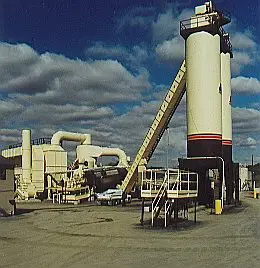 Tar and chip pavement surfaces are nothing new. In fact, there is a strong possibility that you have driven across hundreds of these roads. Many counties use this surface on secondary and rural roads. It is a cost efficient method of repaving and sealing an asphalt roadway.
Tar and chip pavement surfaces are nothing new. In fact, there is a strong possibility that you have driven across hundreds of these roads. Many counties use this surface on secondary and rural roads. It is a cost efficient method of repaving and sealing an asphalt roadway.
Businesses and manufacturing plants often pave large parking areas with this material as well.
There is a good chance that a large paving contractor in your city or town does this work. If you are really fortunate, you may find a smaller company that does it as well.
If you have trouble locating a contractor in your town, there is one sure fire way to determine if this paving system is done in your area. If there are blacktop or asphalt driveways in your area, there is an asphalt plant. This is where blacktop is made. This is the same place where the tar and chip people must purchase the tar or asphalt cement. Find out where the plant is and call and speak to the general manager. Ask if he can put you in touch with the contractors who purchase the tar.
Column B127
